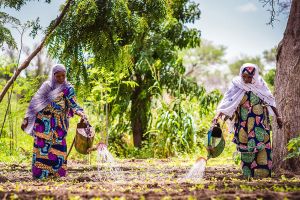This report from the Chicago Council on Global Affairs examines ways that urban waterway development might be used by cities.
Introduction
This report aims to solicit and examine concrete ways in which urban waterway development might be used by cities to expressly improve the quality of life and opportunities for economically or socially excluded populations beyond the downtown core.
Key Findings
Waterways can be among a city’s most valuable assets. They provide transportation, environmental services, economic development opportunities, and access to nature. Today, cities are reinvesting in their neglected industrial waterways as sources for economic growth and urban vitality.
But waterfront development often happens where development is already most active. As a result, its benefits tend to accrue to the wealthier parts of cities, often the downtown core. This trend further concentrates access to the best parts of civic life among a small elite. For cities in which economic inequality falls along racial lines, this development has the potential to further reinforce economic and social segregation.
These features of waterway development can deepen social and economic inequality in cities. It seems possible, however, that cities could use waterway development intentionally as a tool for reducing these divisions and broadening urban prosperity beyond rapidly developing downtowns. This paper builds off of the 2017 Chicago Council on Global Affairs report, Urban Waterways in Global Cities, which identifies the promotion of equity and social inclusion as among the central goals of waterway development. With these goals in mind, cities must undertake the work of enacting policies that ensure equity and social inclusion in waterway development.
At a bare minimum, existing and planned waterway development must be physically accessible to the public. But that is not enough. This report aims to solicit and examine concrete ways in which urban waterway development might be used by cities to expressly improve the quality of life and opportunities for economically or socially excluded populations beyond the downtown core. This report provides:
- An assessment of the state of knowledge about water development and equity.
- Advice on conceptualizing and managing eco-gentrification.
- Discussion of the financing opportunities for equitable waterway investment.
- Recommendations and guiding examples for city leaders to use in the design and execution of waterway development projects.
The goal of this paper is to continue and deepen the discussion of waterway development as a social and economic equity building opportunity which began at the 2018 Forum on Global Cities.


